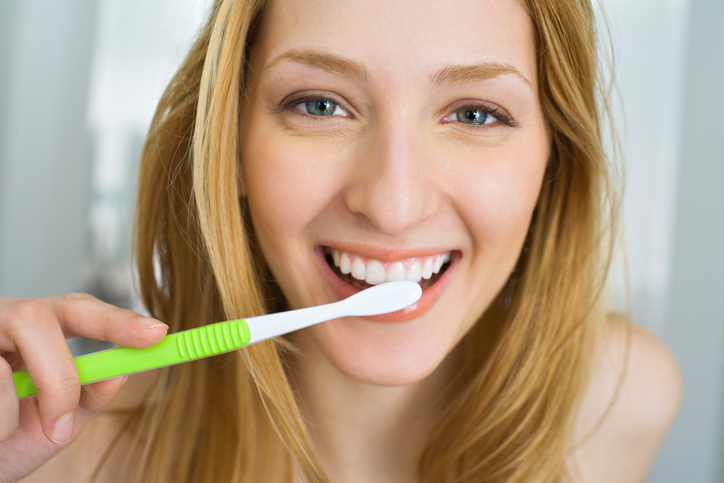Study Finds Damage Done After Not Brushing for Just 24 Hours

As a Denver holistic dentist, Dr. McGinty tries to help educate patients on the interconnected nature of their oral health. Decades worth of research has shown that poor oral health can significantly increase an individual’s risk for a variety of health problems, including heart disease, diabetes, and even dementia. As a result, maintaining our oral health becomes one of the easiest ways possible for ensuring a healthier body overall.
For Dr. McGinty and the American Dental Association, good oral health starts by brushing your teeth at least twice a day, flossing daily, and scheduling regular exams to see your Denver holistic dentist. But what really happens on those days where maybe you don’t have time to brush twice or forget to floss? How much damage can that really cause your teeth and gums? Well, it turns out a lot.
Poor oral hygiene produces bacteria responsible for the development of gum disease and accelerates an aging of the oral microbiome far faster than health experts have previously assumed, according to the results of a recent study.
Just a Few Days of Poor Oral Hygiene Can Cause Problems
In a recent study, researchers from the Chinese Academy of Sciences found that within 24 to 72 hours of the interruption of regular oral hygiene, a steep decline occurs in the number of ‘good oral bacteria’ and the beneficial anti-inflammatory chemicals they provide.
An increase in the number of ‘bad bacteria’ was also recorded in the mouth’s participants. When levels of harmful bacteria increase, so too does a patient’s risk for developing periodontitis, a severe form of gum disease which can cause permanent tooth loss when not treated in time.
The results of the study were published in the journal mBio.
In the study, researchers asked a group of 40 study participants with different levels of naturally occurring gingivitis – an early stage of gum disease – to perform optimal oral hygiene for three weeks. This led to researchers noting a reduction in the participants’ gingivitis and provided a solid baseline for the study to use.
Over the next four weeks, researchers asked the participants to stop regularly brushing and flossing. After just four weeks, the participants’ gingivitis returned. Restarting their oral hygiene routines enabled the participants to reduce their gingivitis, but more lasting changes had already occurred.
After performing genetic analyses of the participants’ oral microbiome, researchers noted that the type of bacteria had changed.
Within just 24 to 72 hours after stopping their oral hygiene routines, researchers discovered a steep decrease in the presence of multiple Rothia species as well as the chemical compound betaine, which studies have noted as playing an anti-inflammatory role in multiple inflammatory diseases.
Additionally, a fast and full activation of multiple salivary cytokines – proteins and other compounds produced by the body associated with inflammation – was noted by researchers. As the number of healthy bacteria declined in the mouths of participants, the amount of harmful bacteria sharply increased.
A Delicate Combination Helps Maintain a Healthy Mouth
When viewed together, the positive association with betaine and the negative association with gingivitis suggests that Rothia may prove beneficial overall to gum health.
“We also found a sudden ‘aging’ of the bacteria in the mouth,” reported researchers. “The oral microbiome of the study participants had aged the equivalent of about a year in less than a month.”
Earlier research has already demonstrated that the composition of an individual’s oral microbiome is a good predictor of that patient’s age. As an individual grows older, certain types of bacteria begin to disappear from their microbiome. For example, older patients tend to have far less Rothia species of bacteria.
Perhaps not coincidentally, older patients also tend to experience more problems with their oral health.
“After only 28 days of gingivitis, we found the study participant had the ‘oral microbiome age’ of those a year older,” reports the research team in their findings.
The results of this study highlight what Dr. McGinty tells her patients. To enjoy quality oral health for a lifetime, you need to make a daily commitment to practicing the best oral hygiene possible.
Brush at least twice a day. Floss daily. And schedule regular exams with your Denver holistic dentist.
That’s the key to a healthy smile, and body, for a lifetime.
